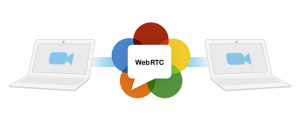As time goes by, the nature of technology we are using in everyday life is changing. It’s progressing and reshaping with more and more people depending on mobile phones to help them get their tasks done. The easy access to the internet has increased the usage of mobile phone apps which generates a great opportunity for website owners and app developers.
One thing that is significant is to provide an interactive user experience on both web and mobile. But depending on the distinction of mobile platforms the development differs for native app development Android and iOS.
In the past, there used to be online native development tools that rely totally on the operating system (OS) for the app’s coding. For instance, if an app is written in Android code and you wish the same logic will run on an iOS device, you need to code from scratch.
The native app development iOS will be done using different techniques and methods that increase the workload of a developer. It means that the native app development has to be done separately for Android and iOS.
On the other hand the progressive web app covers both platforms Android and iOS single-handedly. It loads like a normal website or a regular web page and they are made to be downloaded as apps in almost all kinds of phones and are known to be cross-OS compatible. The progressive apps provide uses with some significant functionalities that include offline working, receiving push notifications, and access to the device hardware.
But while creating software, app developers often get confused about whether to choose native apps or progressive web apps. Though it’s a long debate which is better; Progressive Web App or a Native App. We will cover the top benefits of native app development and progressive web apps with their cons. We will also shed some light on important aspects that should be considered in order to make the right decision.
What is Native App Development?
A native app is a smartphone application that is developed specifically for a mobile operating system. The specific mobile application platforms on which native apps are built include both Android and iOS. For native app development, one needs to have particular knowledge about the programming language such as Objective-C or Swift for iOS or Java for an Android operating system.
Though the native app development framework is low-level programming and it is costly, having access to this one can incorporate surprising levels of improvement in the app’s performance. In addition to that, native apps bring a lot more advantages and the biggest one is that it helps users to fully enjoy app experience even if they don’t have an active internet connection at the moment.
Pros of Native Apps
Some other commendable factors of native apps include:
- When it comes to data safety, native apps are really helpful depending on the phone’s storage capacity.
- The need to translate the codes in a mobile phone or the device doesn’t exist in native apps while writing the programming language, but it happens in progressive web apps.
Cons of Native Apps
The biggest con of native apps is its limitation to the number of users which makes it really difficult to gain new users. What really happens is that people have to follow some steps to download a native app. First they need to visit the app store to search the app, then accept all terms and conditions and wait till installation. The total process sounds hectic for many people and they can get irritated with it so they tend to avoid app downloading.
On the other hand, you don’t need to go through all these steps in the case of progressive web apps as Google allows you to install the app in just a single click.
What is Progressive Web App (PWA)?
This was laucnhed by google a few years back, progressive web app or PWA is the next
level of development that uses the latest technology. PWA are web pages or a website but
they also look like an app aiming to provide a highly interactive user experience on mobile
phones, unlike traditional mobile apps. In order to improve the user experience, Google came up with the idea of PWAs and there are eligibility criteria for a web page to be called PWA; it includes responsiveness, speed, fresh and latest content, safe, app-like and installable.
Pros of Progressive Web Apps
- Since PWA is a web-based product, the great advantage that it offers is low friction. It means you don’t need to open the web page or the app separately as it can be done by just clicking on the board above.
- Whether you want to receive web notifications or not, it comes as a choice with PWA. It saves you from going to the app store and you directly adding the app icon on your phone’s home screen.
- As PWAs are just easily installable and shareable via URL, it has more prospect to attract users that makes it more preferable by many app developers and software companies.
Cons of Progressive Web Apps
The biggest drawback of PWAs is that these are not supported by iOS developed web browsers such as Safari. PWAs only works on Chrome, Firefox, or Opera web browsers. Due to this limitation, PWAs are not chosen by many software companies. However, a survey shows that PWAs function better with mobile websites even though not supported by the phone’s default web browser.
Tip: In case you don’t need much native OS integration, you can choose PWA for a basic website like interaction. And in the opposite scenario, where you want core native interaction functionalities, you must pick Native Application Development as having no expertise and experience in PWA can cost you negatively.
The decision to choose between PWA or native apps completely depends on Native Functionalities required. Having no or less expertise in Native Modules using a PWA is more challenging. But if you consider only basic PWA, it can be beneficial.
PWA vs Native App Development: Which is Better for You?
The decision to choose a native app or progressive web app (PWA) is purely yours depending on your business needs and resources. It has nothing to do with the latest technology. So as per your business goals, you can make the right decision to go for which app development option. However, there are a few questions to consider:
- What innovative and unique idea can I offer my customers?
- What is the price my customer or client is paying for its products or services?
- What value will my technology solution add to the daily lives of targeted customers?
- What are the customer expectations and needs?
Asking these questions will be really helpful to pick the right app development tool. Whether it’s a web app, PWA, or native app development, it’s you who will decide which is the right fit for your business.
Lastly, consider that the development of apps is not actually about the developers, programmers, or people working behind it. In fact it’s all about the users who will be using the apps and will be engaging for the long term with the product you built.
Mobile app development in the world has taken a tremendous rise in recent years and Norgic is one of the top mobile app development companies in Sweden having a team of professionals and experts that work exceptionally. We offer custom software solutions such as native apps and PWAs and build niche market products that will allow the company to deploy faster go to market solutions for its clients.




